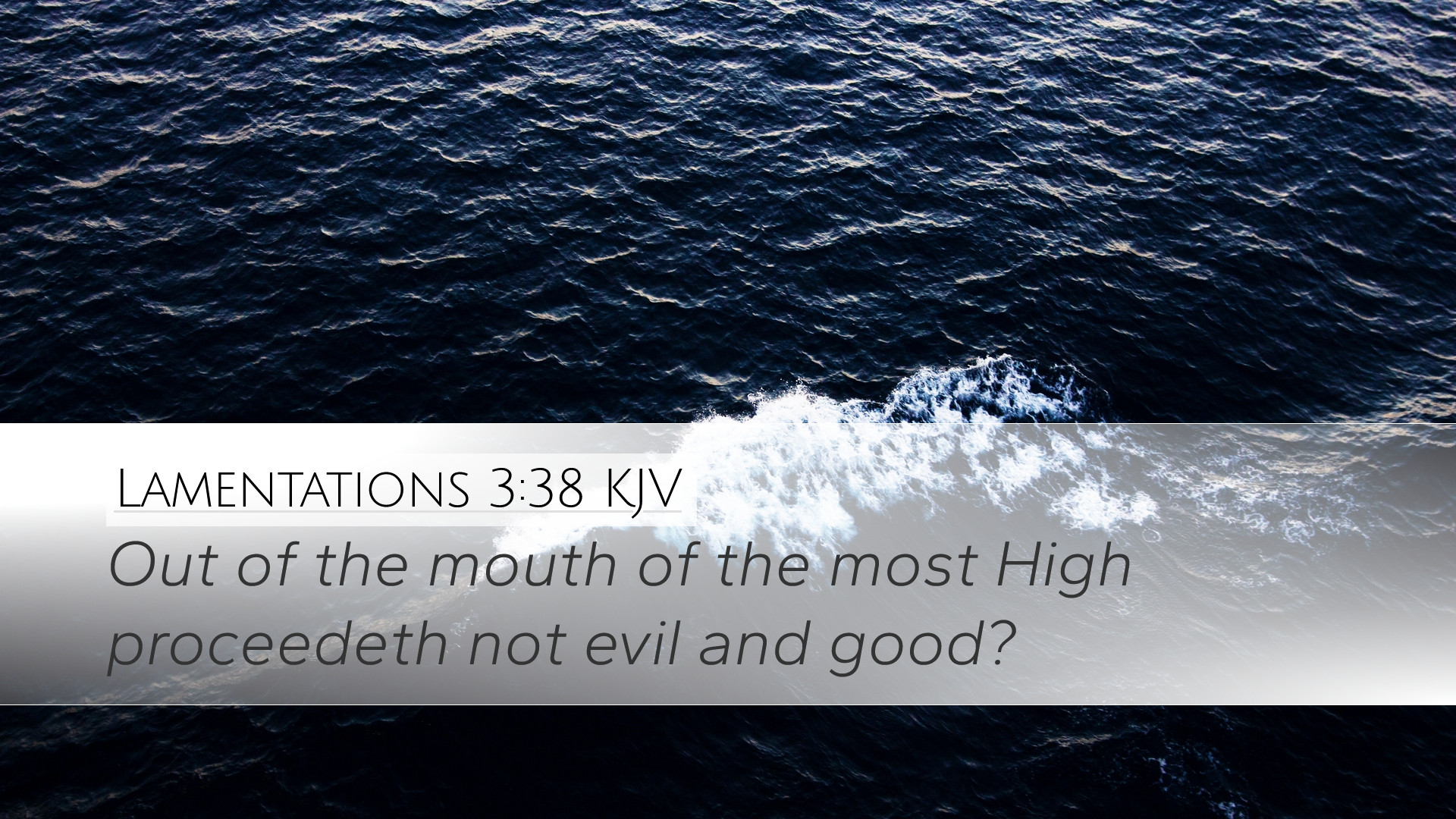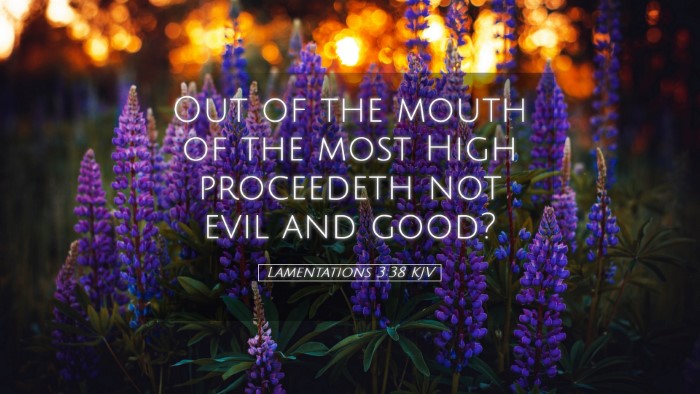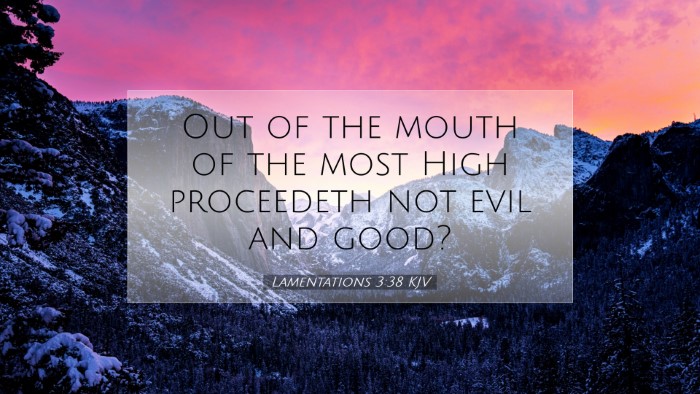Lamentations 3:38 Commentary
Verse: "Is it not from the mouth of the Most High that both calamities and good things come?"
Introduction
The Book of Lamentations, traditionally attributed to the Prophet Jeremiah, is a profound expression of grief over the destruction of Jerusalem. Chapter 3 stands out for its deep reflections on suffering, hope, and the sovereignty of God. Lamentations 3:38 serves as a poignant reminder of God’s omnipotence over both adversity and prosperity.
The Sovereignty of God
In this verse, Jeremiah emphasizes the doctrine of God's absolute sovereignty. It asserts that both calamities and blessings originate from the divine will. This understanding is crucial for pastors and theologians as it addresses the question of suffering and divine justice.
- Albert Barnes notes that all events in the universe occur by divine permission or will, asserting God's authority over both good and evil.
- Matthew Henry elaborates that the verse reflects the character of a just and wise God who governs all things for His glory and the good of His people.
- Adam Clarke emphasizes that the acknowledgment of God in all circumstances leads to a proper understanding of His nature, fostering a deeper faith in His providence.
Calamities and Good Things
This verse challenges believers to reconsider the nature of evil and suffering. Rather than viewing these as irrational, it invites them to see them as under the lordship of God.
Matthew Henry suggests that calamities serve a purpose in God's overarching plan. He posits that they can lead to repentance, generate humility, and ultimately bring about divine favor.
Albert Barnes cautions against the dualistic view of good and evil as separate forces. Instead, he emphasizes that all events, including calamities, ultimately serve God's plan, bringing glory to Him and beneficial outcomes for His people.
Adam Clarke further reflects on the importance of recognizing the hand of God in both trials and blessings, encouraging believers to maintain a posture of thankfulness and trust in all circumstances.
Theological Implications
Understanding the dual nature of God’s involvement in worldly events has profound theological implications, especially in relation to free will, theodicy, and divine providence.
- Divine Sovereignty vs. Free Will: The tension between God’s sovereignty and human agency is a long-standing theological debate. Henry asserts that God’s governance does not negate human responsibility.
- Theodicy: The existence of suffering challenges the character of God. Barnes emphasizes that acknowledging God's control over calamity helps reconcile the presence of evil in a world created by a loving God.
- Providence: The assurance that God oversees all events reassures believers of His constant presence and care. Clarke encourages a view of providence that inspires confidence during trials.
Practical Applications
This verse and its implications can be applied to the lives of believers in several significant ways:
- Comfort in Suffering: By embracing God’s sovereignty, believers can find peace in turmoil, knowing that their struggles are not without purpose.
- Response to Adversity: Pastors can encourage congregations to respond to trials with faith, seeing them as opportunities for growth rather than mere misfortune.
- Gratitude in Blessings: Understanding that good things come from God invokes a sense of gratitude, prompting believers to acknowledge His hand in their successes.
Conclusion
In Lamentations 3:38, Jeremiah presents a profound truth about the nature of God and His governance over the world. For pastors, students, and scholars, this insight into divine sovereignty is not just theological but deeply practical. By recognizing that both calamities and good things are part of God's plan, believers can navigate life’s challenges with faith, hope, and grace.


